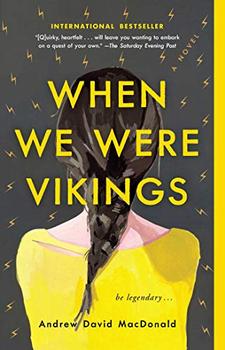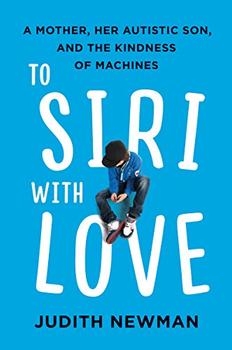Summary | Excerpt | Reviews | Beyond the book | Read-Alikes | Genres & Themes | Author Bio

Kindness and gentleness comfort us in our childhoods. These are also the two things that, even as adults, can cradle us at night and make us smile as each new day begins. Imagine a life in which both were absent. It doesn't sound so pleasant, does it? Eli Gottlieb's affecting Best Boy paints a delicate portrait of a damaged man looking back at a life mostly void of these emotional sensations.
Todd Aaron is the novel's autistic protagonist, and we find out from the story's onset that he struggles with understanding his physical and emotional separation from his family. As he's just entering adolescence at the age of eleven, his mother takes him to live at Payton Living Center. There, she believes, he will be safe - both from himself and from certain cruel family members.
Todd reflects on his first days at Payton as being "very happy," but as he gets older (he's in his fifties as he tells his story), he admits that he "stopped being happy." His unhappiness grows even stronger as time passes: "it was raining all the time in my head even in sunshine and wherever I looked all I saw were dots of water falling sideways across the view. That was how I began to drown." He is a man who hurts. The pain Gottlieb describes is palpable.
It becomes Todd's mission to find his way home. He aches for the love and peace he felt around his mother.
Autism plays a significant role in Best Boy. Sure, this is obviously a novel that follows the life of an autistic man, but Gottlieb delves into the many complex facets of autism that often go unexplored in similar narratives, capturing Todd's social anxieties beautifully. Gottlieb captures the social anxieties of Todd so beautifully.
One fascinating aspect of Todd's social relationships is how he sees gender differences. He has strained relationships with most males, and such trepidation can likely be traced back to his relationship with his father who, Todd says, was always "hitting me." Todd goes further in his description of his abusive father: "He did this with his belt or the cold meat of his hand, sweeping it through the air while he made his frozen face of tiredness. Then it struck." Another unsavory male figure in Todd's life is his brother, Nate. Nate is not entirely bad. He has a few good qualities – at least he pretends he does. However, the memories Todd has of his brother are negative, and they play on repeat in his mind. He can't shake the moment of being called "selfish, thoughtless, and indifferent to other people's feelings." The other men at Payton also taunt and harass Todd. He cannot escape the male dominance that intimidates him, and he quietly suffers because of it.
When Todd is around females, though, he recalls the love and peace of his mother. He can communicate better with women, as he observes: "Girls are easier to talk to than boys. They let you hold their hands and they listen more carefully and they smell better and when you cry they wait longer before telling you to stop." The scenes in which Todd interacts with women are much warmer that those with men.
Gottlieb writes Todd's story in a language that is accessible yet poetic. He creates great, metaphorical moments that describe how consuming autism can be, and also scenes that flow like soft, vulnerable affirmations that any person, on the spectrum or not, might make.
The concluding result of Best Boy is a message that kindness can change a life. Gottlieb suggests that we should treat others with respect and dignity. And, what I think Gottlieb offers most poignantly, is that even if we do not receive love, we should still give it. It is never too late to love. Todd is an example that we should all strive to follow.
Eli Gottlieb's Best Boy will touch your heart, while making you think about how you interact with those at home and with others in this very big world.
![]() This review was originally published in The BookBrowse Review in September 2015, and has been updated for the
June 2016 edition.
Click here to go to this issue.
This review was originally published in The BookBrowse Review in September 2015, and has been updated for the
June 2016 edition.
Click here to go to this issue.

If you liked Best Boy, try these:

by Andrew David MacDonald
Published 2020
A heart-swelling debut for fans of The Silver Linings Playbook and The Curious Incident of the Dog in the Night-Time.

by Judith Newman
Published 2018
From the author of the viral New York Times op-ed column "To Siri with Love" comes a collection of touching, hilarious, and illuminating stories about life with a thirteen-year-old boy with autism that hold insights and revelations for us all.
Your guide toexceptional books
BookBrowse seeks out and recommends the best in contemporary fiction and nonfiction—books that not only engage and entertain but also deepen our understanding of ourselves and the world around us.